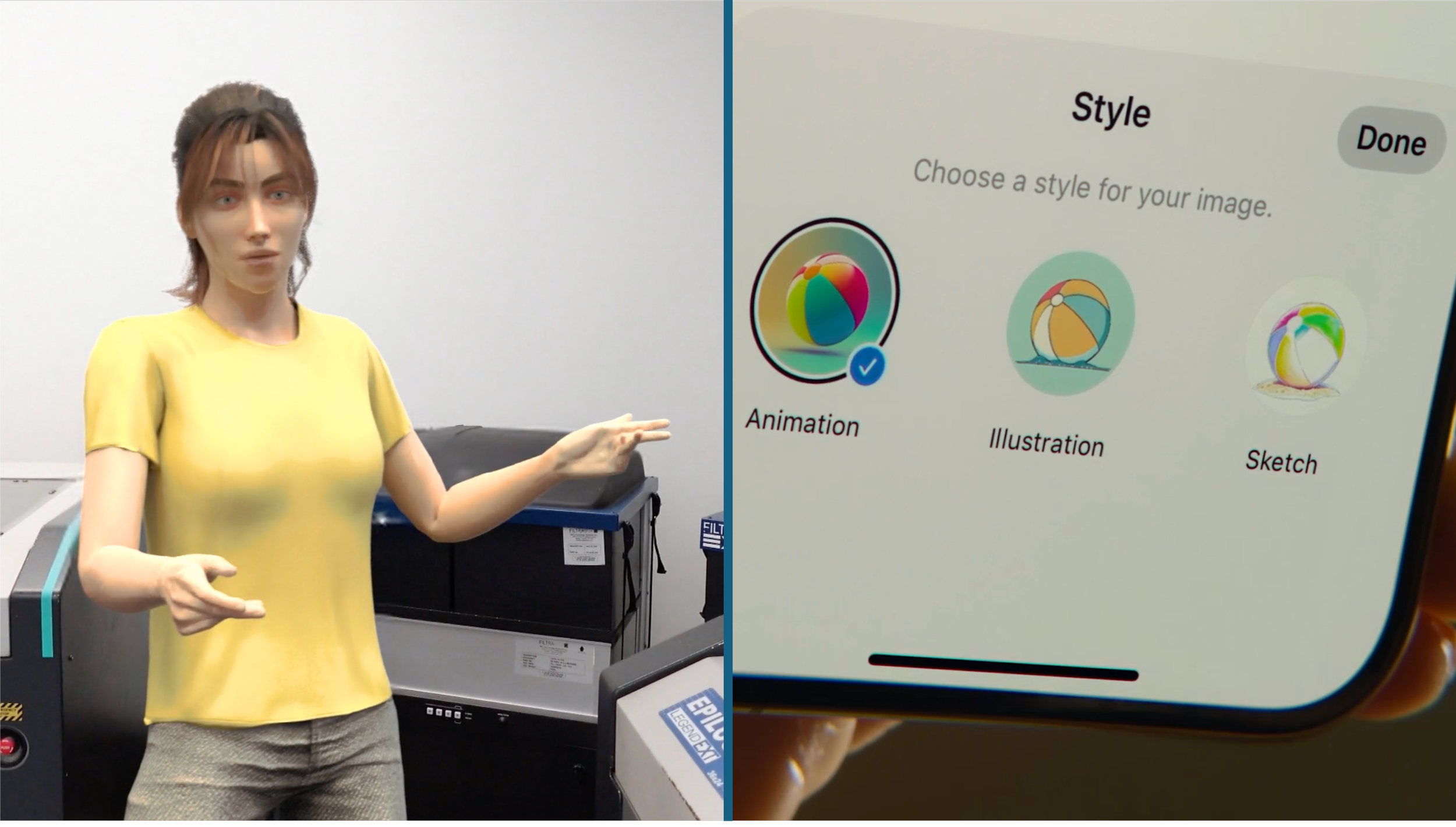In the US, thanks to Apple, “spatial computing” has become synonymous with “augmented reality.” This is not so in other parts of the world; nor does “spatial computing” only encompass future-state tech.
Read MoreAn article in this month’s issue of The Fabricator underscores that physical industry workers are not experiencing the same AI boom as information workers. Are we so accustomed to designing for information workers that we’re overlooking opportunities to serve new audiences?
Read MoreAman Ibrahim created TerifAI (as in “terrify”), a bot that can clone your voice after only a minute or so of conversation. It’s an incredible demonstration of the rapid development (and growing threat) of voice cloning AI, and an example of why the need for biometric voice redaction is becoming more urgent.
Read MoreEmerging tech teams may build a product thinking there’s a market, only to be forced to pivot when sales slump. A human-centered technical exploration can be a starting point for discovering new markets. I helped a consumer robotics team create user-centered “razors” to identify new target customers, despite tight timelines and lack of access to prototypes or production models.
Read MoreAs part of a recent biometric data redaction demo, we used ElevenLabs to replace the voices of participants in recordings with AI-generated speech. Now ElevenLabs has announced new voice models based on classic actors. This raises new questions about trade-offs between participant privacy and stakeholder perceptions.
Read MoreJust because you’re not seeing widespread consumer adoption yet doesn’t mean that spatial computing is languishing! Augmented reality is clearly following the “industry-first” trend we saw with Internet of Things and smart devices.
Read MoreWe’ve started to recognize the quality and legal issues AI brings into our own product ecosystems. But incorporating AI into our products also means we are integrating ourselves into much larger systems: systems with far-reaching and often hard-to-understand consequences. As human-centered professionals, how can we tackle this difficult problem?
Read MoreManuel Herrera did this fabulous sketchnote version of my AI doppelgangers demo at Designing With AI 2024. It's a concise summary of the limited biometric data redaction options available for recordings of humans today, and of some immediate issues with the AI tools that could take over this task in the future.
Read MoreYou’d be hard pressed to get a better snapshot of the self-identified “spatial computing” landscape than AWE 2024. And it shows that there continue to be major disconnects in how different players are thinking and talking about spatial computing.
Read MoreEven seasoned leaders want to grow their skills and connect meaningfully with other professionals. But this becomes harder to do when you’re senior because you are too experienced to find value in 101-level content, and there are more and more people vying for your time and attention. Senior professionals can thrive when supported by past and present colleagues, supplemented by expert consultants.
Read MoreApple's new Vision Pro enterprise APIs are fairly straightforward, but are necessary upgrades for industry. The example use cases Apple discusses are the same as for HoloLens. This is further evidence that the early adopters of augmented reality and spatial computing will be in industry.
Read MoreIn a recent blog post, Simon Willison highlighted Apple’s “ethical approach to AI generated images?” with Image Playground. His arguments are very similar to our case for using avatars to de-identify users in research recordings.
Read MoreThe new Apple Intelligence model for AI data privacy prioritizes local processing, with strict controls for when and how cloud compute is used. What would it look like to use Apple’s model for processing UX and research data with AI?
Read MoreWhat if you could eliminate data privacy concerns with your user research videos, security footage, etc., by automatically removing faces and voices? This project showcases a way to use AI to protect individuals’ privacy rather than threaten it.
Read MoreProduct teams are being told they can't keep research recordings they need because of privacy laws. This is a solvable problem, but the solution we identified requires legal, audio and video editing, and 3D art domain knowledge in addition to research know-how.
Read MoreA recently passed bill in Colorado classifies brain waves as sensitive personal information that must be protected the same as fingerprints and facial recognition data. Most (though not all!) user research doesn’t collect neural data, but we should be prepared for legislation that restricts our ability to collect and store user data in unanticipated ways.
Read MoreTarget is the latest company to be hit with a class action lawsuit for biometric privacy violations–specifically facial recognition data. Legal departments are growing concerned that user research recordings present a similar risk.
Read MoreIn this post, I share my high-level impressions of key spatial computing trends in 2023. Topics covered are hardware, including the Apple Vision Pro and Humane Ai Pin; generative AI, including visual understanding and conversational input; and the metaverse, including VR adoption and divestiture. 2023’s developments indicate that it’s a good time to make sure you’re paying attention, learning relevant skills for spatial computing, and that you know where to go for help.
Read More

















